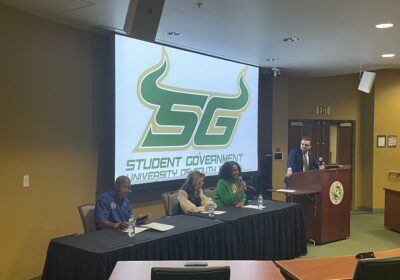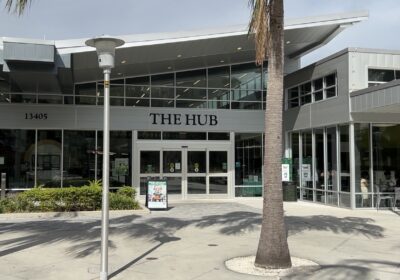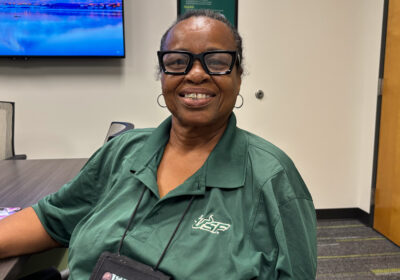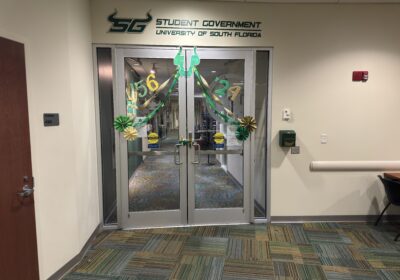Free face masks, hand sanitizers, ‘health and safety measures’ in place for fall semester
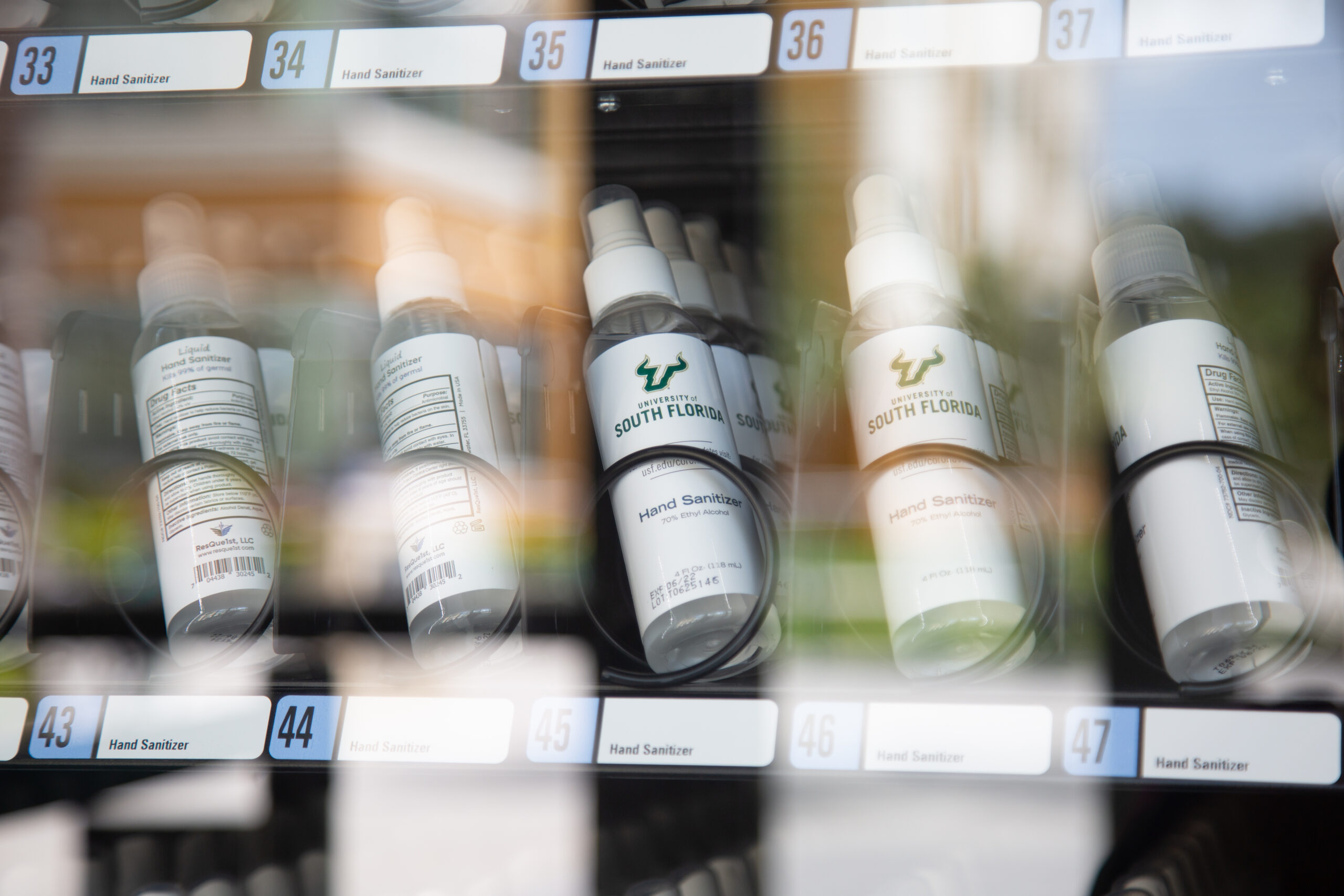
Making reservations to study in the library, wearing a face covering in class and swiping their USF ID card on a vending machine to get free hand sanitizer may seem like a concept from a dystopian movie, but it is now the reality for USF students.
Students can expect to be met with changes as they step foot on campus as precautionary measures have been put in place to allow for social distancing, and students will also need to make personal changes by following the new rules and regulations USF has to prevent the spread of COVID-19.
Not having access to a face covering will be an unacceptable excuse as all USF students will be given two free washable face coverings, according to the Student Guidance for Fall 2020.
Multiple locations will be distributing face coverings across campus. Students on the Tampa campus can pick up their complimentary masks at the Marshall Student Center information desk. Also, on-campus residents will be receiving another free mask in their residential hall.
Besides free face masks, the university has been revamping the campus over the summer with precautionary measures in aiding students and faculty in remembering the communal responsibilities that come with being back on campus, such as wearing a mask and keeping a 6-foot distance from others.
“There are numerous efforts in place to help students, faculty and staff understand the new health and safety guidelines,” USF’s Media Relations Manager Althea Paul said. “Staff has installed nearly 48,000 pieces of signage and decals developed to reinforce the community’s shared responsibility to help prevent the spread of COVID-19.”
Of course, all of these precautions come with a cost.
“So far, USF has invested approximately $2.3 million in health and safety measures,” Paul said. “This number includes costs for signage, stickers, sanitizing wipes, masks, enhanced cleaning, plexiglass and various other related items.”
According to Paul, signage, stickers and the caution tape alone has cost the university approximately $149,000.
Many of the community seating areas have the majority of the chairs closed off with branded tape that says “Do not sit here,” “Thank you for practicing social distancing” and “Physical distancing.” Tables also have stickers on them with the same message.
All of these precautions are being mandated, enforced and funded by USF.
All students, faculty and staff will be held accountable for their actions in order to keep those on campus as safe from contracting COVID-19 as possible.
“Maintaining physical distancing is a required behavior on campus,” Paul said. “If people are seen to be violating this or any other related health and safety policies, they can be asked to leave the room, building or campus and reported to the Office of Student Conduct and Ethical Development or Human Resources for possible disciplinary action.”
Not only are on-campus precautionary measures being taken seriously, but even off-campus events are to be avoided and those who participate in parties or social events risk getting referred to the Student Conduct and Ethical Development office.
Assistant Vice President and Dean of Students Danielle McDonald said in a statement on Aug. 20 that if a student becomes aware of another student engaging in risky behavior concerning the spread of COVID-19, they should contact her or make a referral to the Student Conduct and Ethical Development Office.
“It is important that all of our students help keep this community safe and healthy,” McDonald said. “Faculty and staff have worked tirelessly for the past five months to be able to provide an in-person campus experience, however it is now on you to ensure the campus remains open.”
In alignment with this statement from the dean, Paul said that these responsibilities are a community effort for the common good of everyone on campus so that the university can allow on-campus classes to be possible and safe.
“It is incumbent upon all students, faculty and staff to understand these policies, to follow them and to hold others accountable for following them as well,” she said.
With plans to keep in-person classes going until Thanksgiving break, it is uncertain how long these restrictions on social gatherings will stay in place after the fall semester ends.
“Enhanced health and safety measures will remain in place until further notice,” Paul said.

